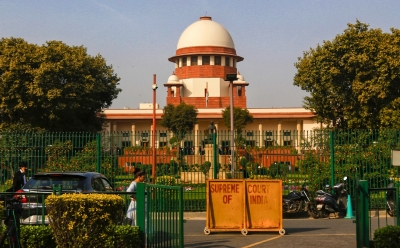
New Delhi, Dec 25 (IANS) The Supreme Court is set to hear next week a plea seeking quashing of the entire process of designation of 70 lawyers as senior advocates undertaken by the Delhi High Court.
As per the causelist published on the website of the apex court, a bench of Justices B.R. Gavai and K.V. Viswanathan will take up the matter for hearing on January 2, 2025.
The petition filed by advocate Mathew J. Nedumpara, a Mumbai-based lawyer, said that the entire process of designation of lawyers as seniors is vitiated by “favouritism, nepotism, patronage and other illegal and extraneous considerations”.
It also said that the separate dress code for designated senior advocates amounts to unjust classification, nay, near apartheid among lawyers and is unconstitutional and void being violative of Articles 14, 19, and 21 of the Constitution of India.
In October last year, the top court had dismissed a plea challenging the designation of senior advocates under the Advocates Act, 1961.
A bench of Justices S.K. Kaul (now retired) and Sudhanshu Dhulia said the system of designation of advocates as ‘senior’ cannot be said to be untenable or be classified as unreasonable under Article 14 of the Constitution.
“We dismiss the petition with no orders as to cost,” said the bench, adding that the plea has been filed under a “misadventure” by the petitioner-in-person, advocate Nedumpara.
Nedumpara’s plea had argued that senior designation has created a class of advocates with special rights and “the same has been seen as reserved only for the kith and kin of judges and senior advocates, politicians, ministers, etc.”
The petition said that the designation of advocates as senior advocates under Sections 16 and 23(5) of the Advocates Act, 1961 as well as under the Supreme Court Rules, 2013 creates a “special class of advocates with special rights, privileges and status not available to ordinary advocates” and is unconstitutional being violative of the mandate of equality under Article 14 and the right to practice any profession under Article 19, as well as the right to life under Article 21″.
–IANS
pds/vd






